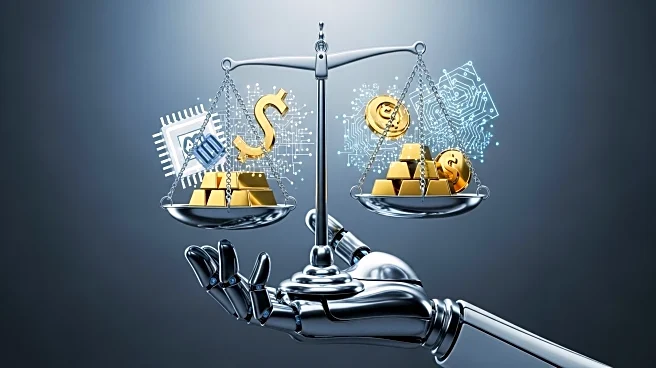What is the story about?
What's Happening?
Ray Dalio, founder of Bridgewater Associates, has raised concerns about the impact of artificial intelligence (AI) and humanoid robots on wealth inequality. He predicts that these technologies will disproportionately benefit the top 1% to 10% of the population, potentially leading to significant societal challenges. Dalio suggests that a redistribution policy may be necessary to address the economic disparities that could arise as AI and robots render many professions obsolete. He emphasizes the need for a policy that goes beyond mere financial redistribution, considering the implications of widespread job displacement.
Why It's Important?
The advancement of AI and humanoid robots could lead to increased economic inequality, affecting various sectors such as law, accounting, and medicine. As these technologies become more prevalent, they may replace human labor, leading to job losses and economic polarization. This shift could necessitate new public policies to ensure equitable distribution of wealth and opportunities. Dalio's call for redistribution highlights the potential need for systemic changes to address the challenges posed by technological advancements, impacting industries, public policy, and societal structures.
What's Next?
Dalio's remarks suggest that policymakers and industry leaders may need to consider strategies for managing the economic impact of AI and robotics. This could involve developing policies that promote equitable access to the benefits of technological advancements and address the potential for increased inequality. The discussion around redistribution policies may gain traction as the implications of AI and humanoid robots become more apparent, prompting debates on how to balance innovation with social equity.
Beyond the Headlines
Dalio's concerns reflect broader ethical and cultural considerations regarding the role of technology in society. The potential for AI and robots to replace human labor raises questions about the future of work and the value of human contributions. This development could lead to shifts in societal norms and values, as well as debates about the ethical use of technology and its impact on human identity and purpose.
















